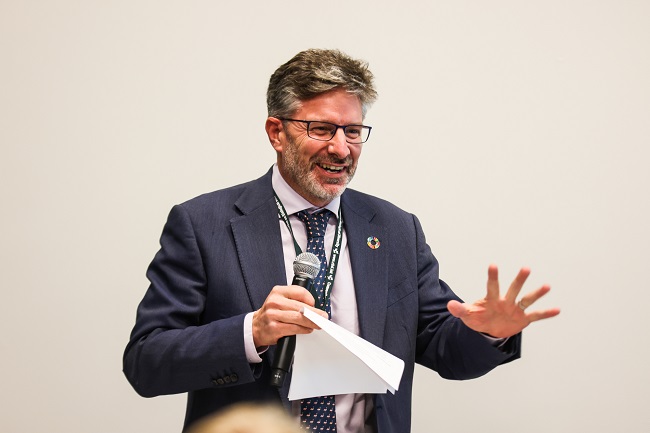The Intergovernmental Platform on Biodiversity and Ecosystem Services (IPBES) has announced the selection of three renowned scientific experts as co-chairs of a vital new multi-year methodological assessment of integrated biodiversity-inclusive spatial planning and ecological connectivity.

This groundbreaking “Spatial Planning and Connectivity Assessment” will provide decision-makers around the world with insight and options for avoiding land- and sea-use change that negatively affect biodiversity, as well as exploring pathways to improve the use of spatial planning for the effective conservation, restoration and sustainable use of nature and its contributions to people. The work will pay particular attention to different regional and national circumstances, and to how spatial planning and connectivity underpin sustainable outcomes for people and nature.
Prof. María José Martínez-Harms (Chile), Dr. Luis Inostroza (Chile and Czechia), and Prof. Peter Verburg (the Netherlands) have been appointed to steer a balanced, interdisciplinary team of experts in spatial planning and ecological connectivity in relation to biodiversity and nature’s contributions to people. The dozens of other authors from around the world who will work with them on this landmark assessment will be announced by IPBES in the coming weeks.
The assessment will look at participatory approaches to spatial planning, including those involving Indigenous Peoples and local communities, with particular attention to the needs of developing countries. The authors will address approaches for the identification of areas for conservation, sustainable use and restoration, including protected areas and other effective area-based conservation measures.
Making the announcement, IPBES Officer-in-Charge, Neville Ash, said: “As countries around the world work to deliver on the Kunming-Montreal Global Biodiversity Framework and the Sustainable Development Goals by 2030, this assessment is directly relevant and timely. It will illustrate the potential and importance of spatial planning in achieving a range of national and international ambitions, including directly informing the delivery of Targets 1-3 of the Global Biodiversity Framework by decision-makers at every level.”
IPBES also announced the selection of the institution that will host the Technical Support Unit for the assessment: the Vrije Universiteit Amsterdam.
The first author meeting of the assessment is already planned for September 2025 in Laxenburg, Austria, with a first draft of the report expected to be ready for open expert review in the second quarter of 2026.
